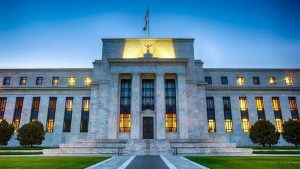Sigmund Freud once said, “Love and work are the cornerstones of our humanness.” Apparently, we are losing our humanity, at least the part related to work. As a result of a variety of transfer payments from both the federal and state governments, some people are choosing to stay at home instead of work. The emergency legislation known as the CARES Act in combination with pumped-up state unemployment benefits can add up to $1,104 a week in places like New York. For many people, this means that they are earning more now to stay home than they were before the pandemic.
As the New York Post points out, “These stimulus benefits make it tough for employers to ask people to work through the crisis, and raise questions about whether government stimulus is hurting the small, cash-strapped businesses it’s supposed to help.”
And the Wall Street Journal reports that “ . . . employers in sectors like manufacturing, restaurants and construction are struggling to find workers. There are more job openings in the U.S. this spring than before the pandemic hit in March 2020, and fewer people in the labor force, according to the Labor Department and private recruiting sites.”
Before we harshly judge people for what appears to be a form of sloth, there are logical, rational reasons why people would choose to stay home and get paid versus punching a clock. It has to do with what’s known as replacement rates. Although this term is often applied to retirement scenarios, in this case, a replacement rate is the percentage at which a federal payment, such as unemployment assistance, including COVID-19 relief assistance, replaces your typical salary. A recent report by the University of Chicago’s Becker Friedman Institute for Economics may shed some light on this phenomenon:
We find that between April and July 2020, 76% of workers eligible for regular Unemployment Compensation have statutory replacement rates above 100%, meaning that they are eligible for benefits which exceed lost wages. The median statutory replacement rate is 145%. We also compute comprehensive replacement rates, which account for employer-provided non-wage compensation and differential tax treatment of labor income and UI. 69% of UI-eligible unemployed have comprehensive replacement rates above 100% and the median comprehensive replacement rate is 134%.
The upshot of all of this is that for a certain sector of society, people are getting more money to stay home (replacement rate) than they would to work. And there are real macroeconomic consequences for perpetuating this scenario.
Peter Schiff, an American stockbroker, financial commentator, and radio personality who has been overtly critical of the unchecked deficit spending by the federal government, warns that we are sowing the seeds of our future destruction, throwing water on the supposed recovery our economy is having:
“If you look at the reason for the so-called recovery, why is the US economy recovering? Well, because a lot of people are spending money, even people who don’t have jobs are spending money. People are spending more money unemployed than they used to spend when they still had jobs. How is all this being made possible? It’s being financed by massive deficit spending that is being enabled by the Federal Reserve monetizing all this debt.”

It turns out that paying people to stay home causes a mismatch between employer demand and the needs of the employee, who are acting out of rational self-interest. Scott Horsley, Chief Economics Correspondent for NPR, frames it like this: “There does seem to be a disconnect right now between employers, who need help urgently to keep up with surging demand, and would-be employees, who are in no particular hurry to return to work.”
Some people have a more cynical view. Nebraska senator Ben Sasse, who holds a doctoral degree in American history from Yale University, puts it this way:
“We should be clear about the policy failure at work here: There are 7,400,000 jobs open in the US – but fewer than 300,000 people found new work last month. Why? This tragedy is what happens when Washington know-it-alls decide to pretend they’re generous by paying more for unemployment than for work. This obviously hurts our economy, but more precisely this hurts people on every Main Street in the nation.”
All of this prolonged unemployment becomes a problem for people down the road. As people stay home and collect assistance, they are typically not working to improve themselves on a professional level, with regard to skills and knowledge needed for advancement. As an Investopedia article points out: “Prolonged unemployment can lead to an erosion of skills, basically robbing the economy of otherwise useful talents. At the same time, the experience of unemployment (either direct or indirect) can alter how workers plan for their futures—prolonged unemployment can lead to greater skepticism and pessimism about the value of education and training and lead to workers being less willing to invest in the long years of training some jobs require.”
For the most part, it’s the smaller businesses that get hit hardest. Sharon Poczter, the Chair of the Strategy and Entrepreneurship Department at Yeshiva University in NYC, writes “The hiring crisis is particularly crushing for America’s small businesses because the unmet demand for workers is also contributing to an upward pressure on wages. Even prior to Covid-19, many small businesses’ greatest challenge was competing with increasing wages by large competitors like Amazon and Walmart.”
The data behind this trend is alarming. A March survey by the National Federation of Independent Business found the following results:
“Forty-two percent (seasonally adjusted) of all owners reported job openings they could not fill in the current period, up 2 points from February, a record high reading. The March reading is 20 points higher than the 48-year historical average of 22 percent. Thirty-four percent have openings for skilled workers (up 1 point) and 19 percent have openings for unskilled labor (up 3 points). Owners are frustrated with mounting unfilled job openings as qualified candidates are scarce.”
And beyond the numbers and macroeconomic data are the personal stories, and struggles, of would-be employers. For example, Blake Casper, who owns 60 McDonald’s locations in Florida, said, “The biggest challenge out there is the federal government and the state government are going to continue with this unemployment.” Casper simply cannot find enough employees to staff his restaurants.
Matt Glassman, co-owner of The Greyhound Bar & Grill, has had similar challenges since reopening his business. Glassman reports, “Finding new hires is a skillset that it was not 16 months ago. We have had an unbelievable amount of people schedule an interview and not show up. We have never had this problem before.”
There are some extreme cases as well. Alejandro Gonzalez, the owner of Margarita’s restaurant in Downtown Syracuse, was so desperate to fill a need for employees that he crossed multiple state lines to do so. According to cnycentral.com, Gonzalez “worked 90 days straight because he could not find local employees willing to work at his restaurant,” ultimately deciding “to travel across state lines, venturing as far as Texas to recruit workers.”
And Gonzalez’s efforts to recruit workers did not stop at travel. Gonzalez states, “Pretty much you have to catch a flight to wherever they are. Rent a car and bring them back. If they don’t have enough money to get a house or an apartment, I get that for them.”
Of course, employment is a complex issue, and there are multiple reasons that people choose to stay out of the workforce and opt for government subsidies. Regardless, some good things have come out of this mismatch between employers’ and employees’ needs, such as rising wages. And these rising wages may be the key to our current problems. As an economic report from Market Watch states, “Economists say higher wages — combined with the reopening of schools and the end of extra jobless benefits — will eventually draw people back into the workforce and ease any labor shortage.”
Chief economist Scott Anderson of Bank of the West is also equally optimistic, arguing, “The market mechanism to clear this labor supply-and-demand imbalance is higher real wages. This would provide more incentive for folks who have exited the labor force to come back in, and for others to switch jobs to sectors where qualified labor is in short supply.”
In the meantime, until all of these forces work themselves out, we can at least honor half of what Freud recommended, and show each other some much-needed love.
At Newsweed.com, we adhere to three simple principles: truth, balance, and relatability. Our articles, podcasts, and videos strive to present content in an accurate, fair, yet compelling and timely manner. We avoid pushing personal or ideological agendas because our only agenda is creating quality content for our audience, whom we are here to serve. That is why our motto is ”Rolling with the times, straining for the truth.”
Your opinion matters. Please share your thoughts in our survey so that Newsweed can better serve you.
Charles Bukowski, the Los Angeles beat poet that captured the depravity of American urban life once said, “There is something about writing poetry that brings a man close to the cliff’s edge.” Newsweed is proud to stand in solidarity and offer you a chance to get close to the cliff’s edge with our first Power of Poetry Contest. Are you a budding bard, a versatile versifier, a rhyming regaler? Do you march to the beat of iambic pentameter, or flow like a river with free verse? If so, here’s your opportunity to put your mad poetic chops to the test. Enter our poetry contest for bragging rights and an opportunity to win some cash!






